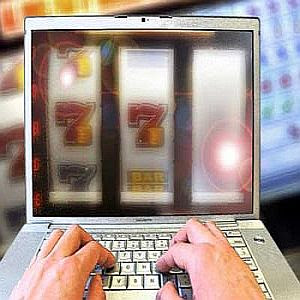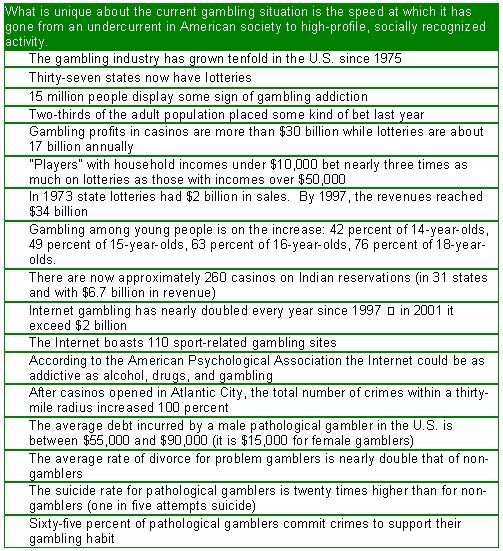A State-Fostered Addiction to Online Gambling in the Cards for Ontario
The Ontario Government has decided that gambling at casinos and local corner stores is not creating a sufficient amount of revenue. Therefore, they plan to introduce Ontarians to online gambling in the comfort of their own homes. Anyone that has set foot in a casino has seen the large number of regulars with their zombie-like expressions plugged into a slot machine. Not only will this make it almost effortless for faithful gamblers to feed their addiction, it will also attract many amateurs that have shied away from the noise and chaos of the casino.“With no pressure to say when to stop and without real tangible money being paid out at the counter, the urge to say “just one more time” while sitting at the computer

 The Ontario Government has decided that gambling at casinos and local corner stores is not creating a sufficient amount of revenue. Therefore, they plan to introduce Ontarians to online gambling in the comfort of their own homes.
The Ontario Government has decided that gambling at casinos and local corner stores is not creating a sufficient amount of revenue. Therefore, they plan to introduce Ontarians to online gambling in the comfort of their own homes.
Anyone that has set foot in a casino has seen the large number of regulars with their zombie-like expressions plugged into a slot machine. Not only will this make it almost effortless for faithful gamblers to feed their addiction, it will also attract many amateurs that have shied away from the noise and chaos of the casino.
“With no pressure to say when to stop and without real tangible money being paid out at the counter, the urge to say “just one more time” while sitting at the computer keyboard will be hard to resist for those who are tempted.”
Despite any efforts the government puts forth to control online gambling, there will still be a number of minors gambling with their parents’ credit cards.
At one time, McGuinty called video lottery terminals the ‘crack cocaine’ of gambling, where he reflected on the obvious: that money would be better spent on basic necessities of life. It seems he has since had a change of heart.
“It’s a pastime in which, as New Democrat Peter Kormos charmingly put it Thursday, a player doesn’t even have to shower or bathe to pursue the constantly alluring, but rarely conquerable, Lady Luck.”
Come 2012, Ontario can expect that people with problem gambling or a susceptibility to it will be more isolated and less engaged in their life, which will eventually lead to more poverty, more homelessness, more unemployment, more impact on healthcare, more broken homes…to name a few.
Definition:
Problem gambling, formally known as ludomania, is an urge to gamble despite harmful negative consequences or a desire to stop. It is often defined by whether harm is experienced by the gambler or others, rather than by the gambler’s behavior.
Severe problem gambling may be diagnosed as clinical pathological gambling if the gambler meets certain criteria. Although the term gambling addiction is common in the recovery movement pathological gambling is considered to be an impulse control disorder and is therefore not considered by the American Psychological Association to be an addiction.
Diagnosis:
Diagnostic Criteria (5 or more of the following symptoms):
1. Preoccupation. The subject has frequent thoughts about gambling experiences, whether past, future, or fantasy.
2. Tolerance. As with drug tolerance, the subject requires larger or more frequent wagers to experience the same “rush”.
3. Withdrawal. Restlessness or irritability associated with attempts to cease or reduce gambling.
4. Escape. The subject gambles to improve mood or escape problems.
5. Chasing. The subject tries to win back gambling losses with more gambling.
6. Lying. The subject tries to hide the extent of his or her gambling by lying to family, friends, or therapists.
7. Loss of control. The person has unsuccessfully attempted to reduce gambling.
8. Illegal acts. The person has broken the law in order to obtain gambling money or recover gambling losses. This may include acts of theft, embezzlement, fraud, or forgery.
9. Risked significant relationship. The person gambles despite risking or losing a relationship, job, or other significant opportunity.
10. Bailout. The person turns to family, friends, or another third party for financial assistance as a result of gambling.
Treatment:
Most treatment for problem gambling involves counselling, step-based programs, self-help, peer-support, medication, or a combination of these. These can include:
- Gamblers Anonymous (GA): a 12-step model similar to AA and NA.
- Cognitive Behavioral Therapy (CBT): therapy that focuses on the identifying gambling-related thought processes, mood and cognitive distortions and building skills for preventing relapse, becoming assertive, problem solving and reinforcing proper behavior.
- Paroxetine: an SSRI that has proven to be efficient in treating pathological gambling.
Some U.S. Statistics:
Addiction is a high risk with online gambling
Coyle: McGuinty’s gamble lacks ‘moral purpose’
Problem Gambling
Gambling Facts and Statistics
© www.understandingaddictions.com
SOURCE: Understanding Addictions – Read entire story here.









